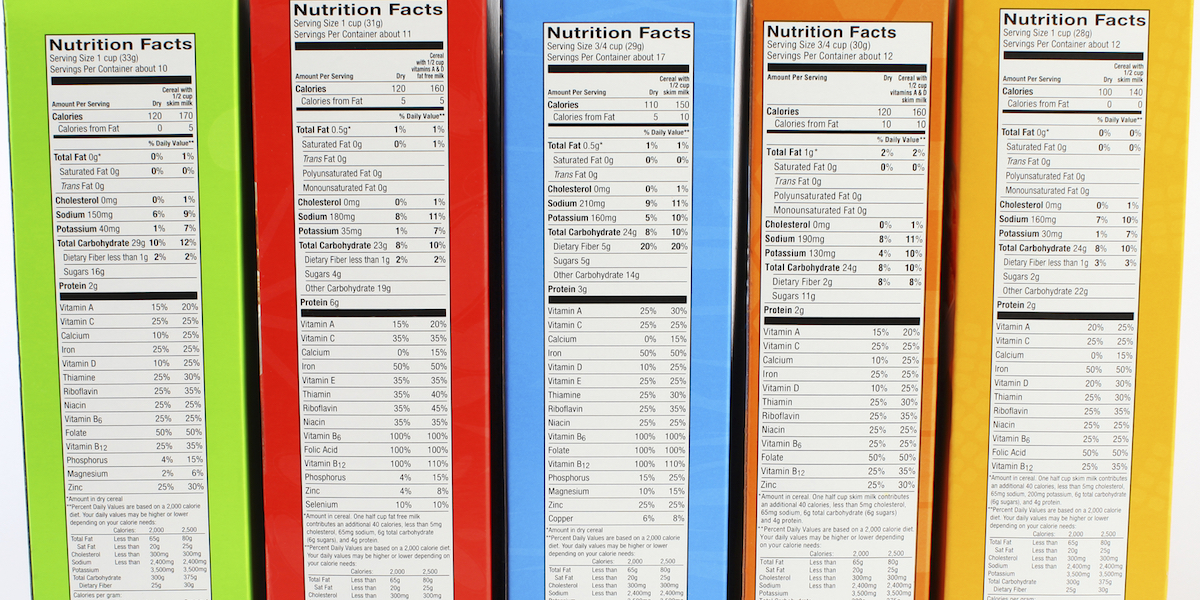Most people don’t believe me when I say I remember learning about mitosis in 5th grade, but I do.
And I’m not talking about the kind of remembering where I vaguely recollect learning *of* it. I was fascinated by the stages of prophase, metaphase, anaphase and telephase, and couldn’t believe that our chromosomes did such a beautiful dance every time a cell would divide.
I mean, have you seen it?
In high school, biology was always my favorite subject. I even took an extra class in physiology just for funsies.
And after dicking around as an English major for a few years at Berkeley I ultimately graduated with a degree in molecular and cell biology. (I won’t tell you the kinds of grades I got in my MCB classes, because you’d hate me.)
That’s how much I love biology.
As you can imagine, this kind of devotion to the microscopic secrets of the human body added plenty of fuel to the fire of my dieting obsession.
Trending: Navy SEAL Secrets for High Performance Under Pressure
Calories, carbs and fat counts? Couldn’t get enough of ’em. I had piles of notebooks filled with each sinful and virtuous molecule I consumed, and took an embarrassing number of nutritional supplements.
Had the Quantified Self movement been around back then, I would have been a disciple. (Soooooo glad it wasn’t).
I know the temptation to count and quantify what you eat. It feels good.
It feels like control. But it isn’t.
I’ve explained before how nutrition facts on labels can be grossly inaccurate and howmoralizing your food choices can create unhealthy eating behaviors.
But an even more straightforward reason to avoid the allure of nutrition facts is that they are a distraction.
One of the most persistent delusions most of us live under is that more information leads to better decisions. But a significant amount of behavioral research (here’s a nice summary) has shown that more choices are more likely to confuse you and create decision paralysis.
Even if you choose something despite the information overload, you’ll probably be less happy with your choice since you can never be sure if you truly made the best decision.
I’m not arguing that valuable information isn’t valuable. If you don’t know that a tablespoon of oil (any kind) is 120 calories, or that this package actually contains 4 servings instead of 1, that is probably good to know.
But if you’re looking at a label thinking, “Ooooohhhh, that’s a lot of sodium. But all that calcium has to be good, right?” then there’s a good chance the food industry is pulling the wool over your eyes.
Trending: How to Make Menopause the Best Time of Your Life
Big Food doesn’t hate you, but they don’t exactly respect you either. They know that food health trends sell products, and at the end of the day that is their goal. If more calcium is good for you, all the better. But they don’t really care that calcium supplements don’t actually make you healthier.
Unless you find out. Then they totally care.
When you’re at the store comparing two (or more) items, don’t try to figure out which is healthiest by comparing fiber, protein and sugar levels. Just look at the ingredients.
That way you can know if the nutrient levels actually come from Real Food, or if they were just added to “health wash” an otherwise unhealthy product.
But even when looking at the ingredients, you should be skeptical.
Food marketers are starting to get wise to our desire for Real Food. I’ve noticed an uptick in the past few years of health washing seeping into the ingredients list to make things sound more natural.
When I wrote Foodist I found nearly 50 code words for sugar. Today there are many more, and I’m starting to see things like “Organic Palm Kernel Solids” on ingredient lists, which iscode for saturated fat.
Sounds a lot more friendly, right?
Trending: Microsoft, Google, and Beyond: What Business at the Cutting-Edge of AI Looks Like
You’d actually be better off eating pure butter than the protein bar I found this in, which contains a whopping 12 code words for sugar.
Natural saturated fats aren’t bad (processed fats are), but anything with that much added sugar can’t be a health food. And this particular bar is most definitely marketed as a health food.
I know how hard it is to keep processed foods out of your life completely, and that’s not what I’m suggesting.
I just don’t want you looking at nutrition labels and fooling yourself into believing something is healthy when it really isn’t.
Originally published May 6, 2015, before the FDA announced their new nutrition facts labels. This article remains as true as ever.
A version of this article originally appeared on Darya Rose’s website, Summer Tomato.






























